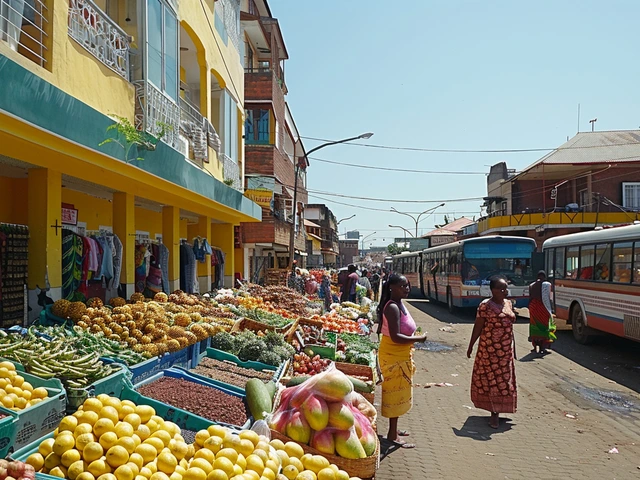Coffee Export in Ethiopia: Jobs, Market Trends, and How to Get Involved
Coffee isn’t just a drink in Ethiopia—it’s a huge part of the country’s economy and everyday life. If you’re wondering why Ethiopia stands out, it’s because coffee was actually discovered here. Today, it’s one of the country’s top exports and a major source of jobs and income. Whether you’re a job seeker, investor, or just curious about how coffee export works in Ethiopia, you’ll find practical info right here.
The backbone of Ethiopia’s export economy is coffee. Each year, millions of smallholder farmers harvest beans that end up in cafes around the world. More than 15 million Ethiopians rely on coffee for their livelihood, from farming and transport to export logistics and quality control. If you’re thinking about job opportunities, the coffee industry offers a range of roles—from field agronomy to marketing, logistics, and trading. Big cities like Addis Ababa often advertise openings in export agencies, research centers, and quality labs.
Looking at business opportunities? Exporting coffee involves several steps. Producers sell beans to local collectors, who then deal with exporters licensed by the Ethiopian Coffee and Tea Authority. Exporters manage everything from quality control and packing to international sales. The best part? The government supports coffee exporters through various incentives and trade agreements with buyers in Europe, the US, the Middle East, and Asia.
If salary potential is on your mind, roles in the export side—like quality assessors, international sales coordinators, and logistics managers—usually pay more than local jobs. Fluency in languages like English or Amharic is a huge plus. The most successful professionals know both the local context and international standards, so investing in language or export training can set you apart from the crowd.
Curious about how coffee export shapes the job market? Demand is steady because global love for Ethiopian coffee keeps growing. Even when the international market shifts, local coffee remains a hot commodity, so job security is stronger here than in many other sectors. Plus, with new technology and digital marketplaces, modern skills—like e-commerce or data analysis—are becoming valuable in the coffee export scene.
Thinking about starting your own export business? You’ll need to understand local regulations, traceability requirements, and international buyer preferences. But there’s lots of room for newcomers, especially if you’re willing to connect small-scale farmers with big global buyers or add value through specialty coffee branding.
If you want to make a living, build a career, or invest in Ethiopia, following the path of coffee is a smart move. Jump into the coffee export industry, and you get a mix of history, culture, and solid business opportunities—all right at your fingertips.





